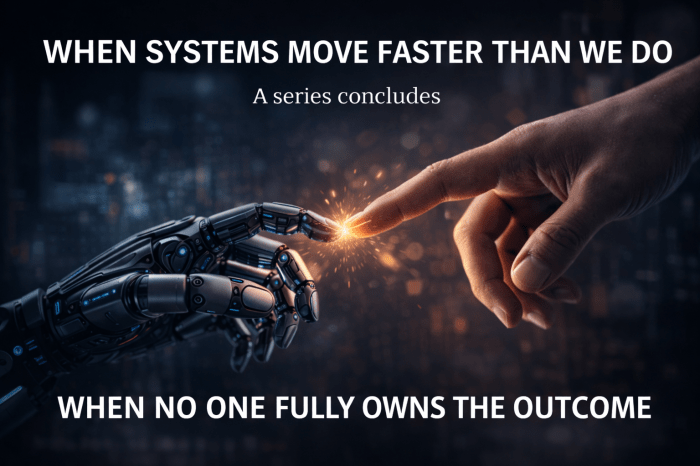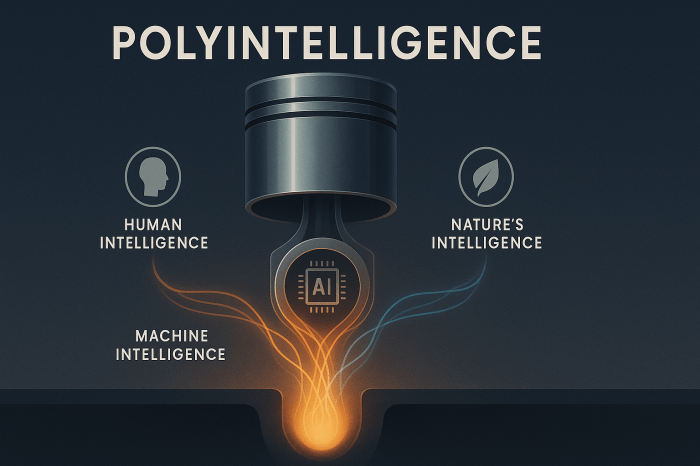Over the years, I’ve had the opportunity to work alongside leaders who think deeply about the structural forces shaping our future. Michael Wright is one of them. I had the pleasure of keynoting his Biomimetics conference in Minnesota — an event grounded in the idea that nature’s architectures still hold lessons for navigating modern complexity. That experience left me with a deep appreciation for Michael’s ability to connect technology, governance, human behavior, and leadership into a single systemic frame.
In my recent systemic change series, I explored how convergence across foundational domains — science, technology, economics, geopolitics, society, environment, and philosophy — is creating new forms of acceleration. We examined how tightening feedback loops, compressed response times, and institutional lag generate what I’ve described as coordination strain. The system is not just moving faster; it is reorganizing itself under pressure.
Continue reading

